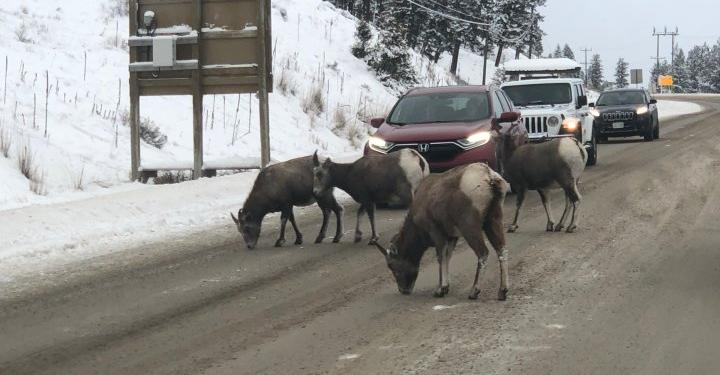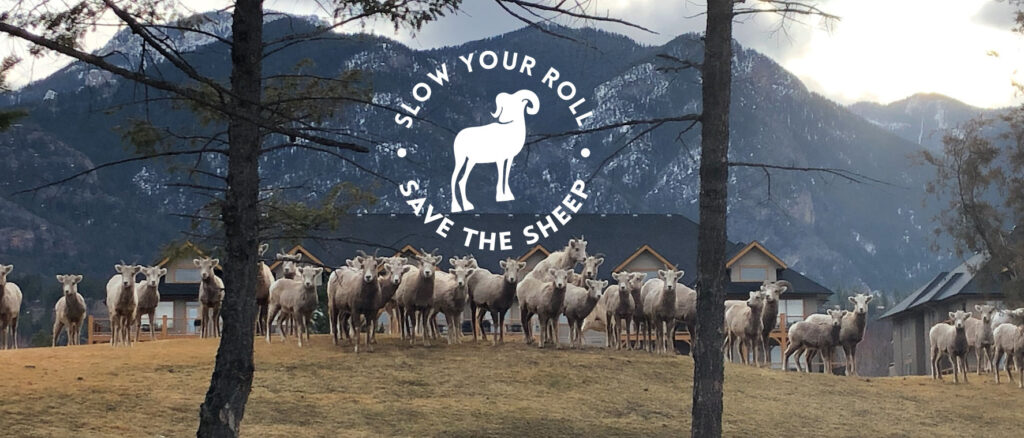19 bighorns were killed on Highway 93/95 near Radium Hotsprings during 2021. That’s a significant number.
At the same time the provincial government is considering putting bighorns in Region 4 on Limited Entry Hunting.

This seems reasonable, right? A huntable population is under stress so we should, logically, reduce the amount of hunter caused mortality to preserve the population, right?
Wrong. Bighorns face multiple threats. Regulated hunting that targets mature males who have already passed on their genes and are past prime age is a minor threat. Much more significant threats are habitat degradation, disease, climate change and predation.
These significant threats have something in common: the solutions are costly.
The regulated, informed by science and generally sustainable mortality threat posed by hunting? It has a solution that is cheap and easy to implement. Sadly, it’s not effective because it doesn’t address the significant threats.
This approach is called “Managing to Zero” because instead of managing the resource in a way that addresses the significant threat the managers, largely because they’re under-funded and under-resourced, pull the only lever they actually can, regardless of how effective that lever is.
Why are the sheep doing this? They’re drawn to the roadside and the urban area by salt, food and lack of predators. The herd once numbered around 350, the target population is 250, and it currently numbers about 140. As Clayton Lamb, well known BC wildlife bio points out, fire suppression has reduced sheep winter range by reducing the grasslands that the sheep would normally feed on. The solution is fencing and a wildlife overpass.
What can you do?
First, visit and like the Facebook page “Help the Radium Bighorn Herd”, which you can find by clicking on the link below the image:

Second, visit the provincial government engagement page on the proposed LEH season by clicking here . When you get to the page go to the top menu and click on “Login”. You will need your BCeID, but once you go through the process you’ll return to the initial government page with one difference: at the bottom of the page you’ll have the opportunity to support or oppose the proposed change. I recommend opposing it and then sharing your reasons.
The reasons to oppose this move is that it does not solve the problem even though it appears to solve it. It omits predator control, habitat restoration and connectivity and most important, traffic death mitigation.
Last, contact your MLA and advocate for an overpass. The cost is about $4 million, which seems high, but when compared to a $300,000 statue recently erected in Radium celebrating the sheep, or an 11 million traffic roundabout, and considering the deaths of sheep, the potential deaths of motorists, and the insurance costs, it’s money well spent. Liberal MLA for the area, Doug Clovechok, has been working on this project, so if you’re a Lower Mainland voter with an NDP MLA point out to them that their nemesis, the Liberals, are more eco-friendly on this than the NDP is!
You can contact Doug Clovechok at doug.clovechok.MLA@leg.bc.ca, and you can contact North Van and West Van MLAs Bowinn Ma at bowinn.ma.MLA@leg.bc.ca, Susie Chant at susie.chant.MLA@leg.bc.ca, Karen Kirkpatrick at karin.kirkpatrick.MLA@leg.bc.ca and Jason Sturdy at jordan.sturdy.MLA@leg.bc.ca.
